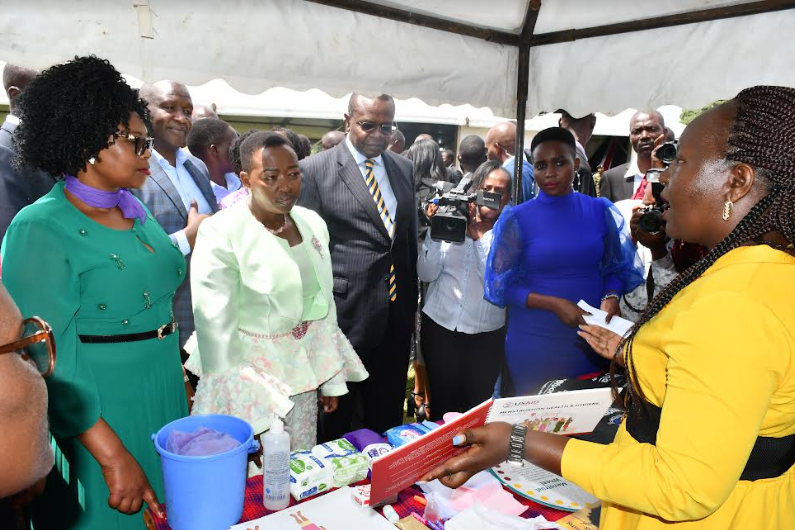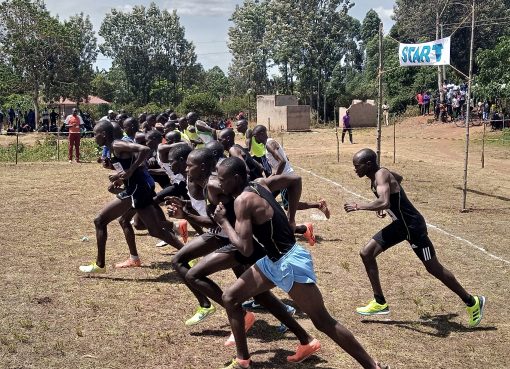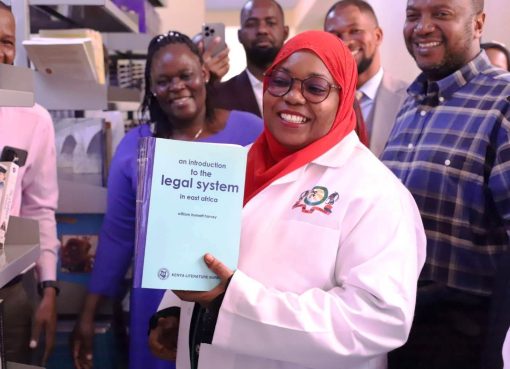Leaders from the Lake Region Economic Bloc (LREB), consisting of 14 counties, have united to end the triple threat of HIV and AIDS, sexual and gender-based violence (SGBV), and adolescent pregnancies.
The counties of Kericho, Kisumu, Bomet, Siaya, Bungoma, Busia, Homabay, Kakamega, Kisii, Migori, Nandi, Nyamira, Transnzoia, and Vihiga are around Lake Victoria, and its environs are resolved to end gender-based violence, adolescent pregnancies, and reduce the effects of HIV and AIDS amongst the youth.
During a forum held yesterday (October 11, 2023) at Kenya Highlands University in Kericho to mark the International Day of the Girl Child, whose theme was ‘Invest in Girls’ Rights: Our Leadership, Our Wellbeing, it was revealed that HIV remains a significant public health threat for adolescents and young people, with an estimated 98 new HIV infections occurring every week among adolescents aged 10–19 in Kenya.
In her keynote speech, the First Lady, Mrs. Rachael Ruto, who graced the occasion as the chief guest, said ending the triple threat requires a multifaceted approach from stakeholders that will bring in long-term interventions that are inclusive of both boys and girls in the campaign to solve the triple threat.
“We must continue to work together to create a safe environment for the girls by eradicating the triple threat, which remains a pressing concern for the girl child in Kenya today,” she added.
At the same time, the chair of the Lake Region Economic Bloc (LREB), Prof. Anyang’ Nyong’o, who is also the Kisumu Governor, assured that LREB is committed to incorporating gender and girl child rights issues in designing and implementing development programmes among the 14 member counties.
“Our conversations are hinged on ending the triple threat. We recognise that girls who stay in school are more likely to be empowered and avoid early marriages and pregnancy, thus contributing to our socio-economic development,” remarked Prof. Nyong’o.
Also present was Siaya Governor James Orengo, who said girls have the right to education and a healthy life from their critical formative ages until they mature and only needed support during their adolescence for them to realise their full potential in making a difference in the world.
“In Siaya, we are working closely with all relevant stakeholders to ensure that the girl child enjoys all the fundamental rights she is entitled to,” Orengo added.
Orengo recommended building cohesion amongst the communities in the country so they can unite in fighting the socio-economic challenges facing them.
He also called for the building of more industrial parks in every county, more so along border lines where communities can share the facilities, saying this initiative would enable Kenyans to integrate more and create long-lasting cohesion.
“I schooled in the Sondu area, which is part of Kericho County, and during that time, though from different communities in the border town, we coexisted well,” Orengo added.
Meanwhile, Kericho Governor Dr. Eric Mutai reiterated the need for peaceful coexistence among communities living along the Kericho-Kisumu border, saying that soon, together with his Kisumu counterpart Prof. Anyang’ Nyong’o, they will convene peace meetings to enhance more cohesion and integration in order to allow trade to flourish in the region.
Lately, there have been conflicts between two communities living on the Kericho-Kisumu border in Sondu town, where there were reports of cattle theft and arson attacks that resulted in the loss of lives. However, the conflict has since been contained.
Other leaders at the girl child forum from the Lake Region Economic Bloc (LREB) who were present included Kericho Governor’s wife Betty Mutai, her Siaya counterpart Dr. Betty Orengo, and Prof. Janet Barasa.
Kericho Women Representative, Ms. Beatrice Kemei, who was also present, called for the construction of a rescue and rehabilitation centre for gender-based violence victims in the region.
By Dominic Cheres and Kibe Mburu




